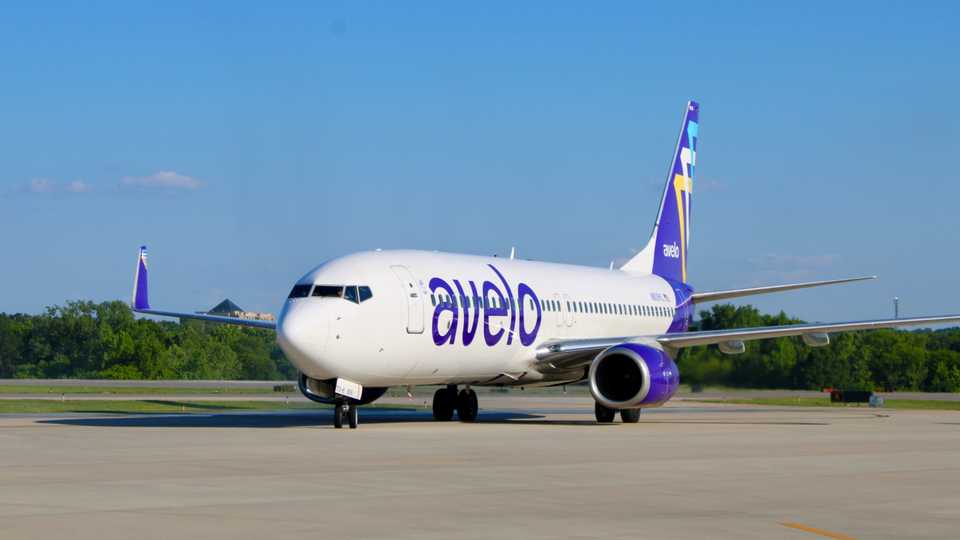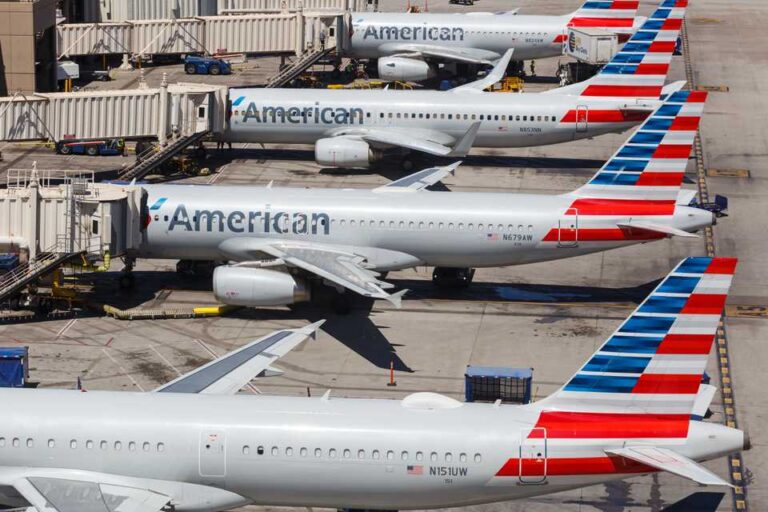“Our Star Departure”: Inside Avelo Airlines’ Impressive Operational Performance
Just three years old, Avelo Airlines was recently named the most reliable airline in the United States. While smaller than any of its legacy competitors, it only canceled two June flights out of over 1,600 scheduled services.
What makes it work?
Simple Flying recently sat down with Avelo Airline’s Chief Operating Officer, Greg Baden, to talk about what it takes to become the most on-time carrier while canceling the fewest flights. The secret, it turns out, lies in the day’s first flight.
Avelo operates primarily from smaller airports using the out-back system, where the airplanes leave and return to their base every night. According to Baden, this provides a much better opportunity for the carrier to perform routine maintenance and keep the aircraft cleaned and in position for an early start.
Every morning, the planes undergo a wake-up check to ensure they’re ready to go and fueled properly to leave the gate on time. This is where the airline’s Star Departures come into play. The term comes from the phrase “Start The Airline Out Right” and is tracked within the organization. Baden explained that while disruptions can always happen, there is a significant focus on getting the first flight of the day to leave on time:
The data will tell you if you get out of the gates, we start the race for the day on time, or a few minutes ahead, that your percentage of keeping everybody on time throughout the day is just going to be better.”
So far, it appears to be working, with Baden confirming that 93% or more of Avelo’s first flights depart the gate on time.
Convenience is key
Another significant contributing factor is Avelo’s use of uncongested airports. The airline’s strategy includes serving primarily second-tier airports or infrastructures in or near largely populated areas. By design, operating from airports with a limited number of gates reduces the time an aircraft spends waiting to depart.
For instance, Avelo’s base in Tweed-New Haven Airport in southern Connecticut has just three boarding gates. While the airline does serve major hubs, including Atlanta (ATL) and Houston (IAH), it also strategically focuses on connecting to faster and more convenient airports, such as Concord-Padgett Regional Airport (USA), as a gateway to Charlotte, North Carolina. For Baden, it’s a combination of many factors that make the airline so reliable:
The airline recently announced its most significant expansion to date, with 18 new routes joining the carrier’s lineup. To facilitate this growth, Avelo expects four more planes before the winter season begins (three of which have already been painted), bringing the fleet up to 20 Next-Generation Boeing 737s.
Just three years old, Avelo Airlines was recently named the most reliable airline in the United States. While smaller than any of its legacy competitors, it only canceled two June flights out of over 1,600 scheduled services.
What makes it work?
Simple Flying recently sat down with Avelo Airline’s Chief Operating Officer, Greg Baden, to talk about what it takes to become the most on-time carrier while canceling the fewest flights. The secret, it turns out, lies in the day’s first flight.
Avelo operates primarily from smaller airports using the out-back system, where the airplanes leave and return to their base every night. According to Baden, this provides a much better opportunity for the carrier to perform routine maintenance and keep the aircraft cleaned and in position for an early start.
Every morning, the planes undergo a wake-up check to ensure they’re ready to go and fueled properly to leave the gate on time. This is where the airline’s Star Departures come into play. The term comes from the phrase “Start The Airline Out Right” and is tracked within the organization. Baden explained that while disruptions can always happen, there is a significant focus on getting the first flight of the day to leave on time:
The data will tell you if you get out of the gates, we start the race for the day on time, or a few minutes ahead, that your percentage of keeping everybody on time throughout the day is just going to be better.”
So far, it appears to be working, with Baden confirming that 93% or more of Avelo’s first flights depart the gate on time.
Convenience is key
Another significant contributing factor is Avelo’s use of uncongested airports. The airline’s strategy includes serving primarily second-tier airports or infrastructures in or near largely populated areas. By design, operating from airports with a limited number of gates reduces the time an aircraft spends waiting to depart.
For instance, Avelo’s base in Tweed-New Haven Airport in southern Connecticut has just three boarding gates. While the airline does serve major hubs, including Atlanta (ATL) and Houston (IAH), it also strategically focuses on connecting to faster and more convenient airports, such as Concord-Padgett Regional Airport (USA), as a gateway to Charlotte, North Carolina. For Baden, it’s a combination of many factors that make the airline so reliable:
The airline recently announced its most significant expansion to date, with 18 new routes joining the carrier’s lineup. To facilitate this growth, Avelo expects four more planes before the winter season begins (three of which have already been painted), bringing the fleet up to 20 Next-Generation Boeing 737s.
Just three years old, Avelo Airlines was recently named the most reliable airline in the United States. While smaller than any of its legacy competitors, it only canceled two June flights out of over 1,600 scheduled services.
What makes it work?
Simple Flying recently sat down with Avelo Airline’s Chief Operating Officer, Greg Baden, to talk about what it takes to become the most on-time carrier while canceling the fewest flights. The secret, it turns out, lies in the day’s first flight.
Avelo operates primarily from smaller airports using the out-back system, where the airplanes leave and return to their base every night. According to Baden, this provides a much better opportunity for the carrier to perform routine maintenance and keep the aircraft cleaned and in position for an early start.
Every morning, the planes undergo a wake-up check to ensure they’re ready to go and fueled properly to leave the gate on time. This is where the airline’s Star Departures come into play. The term comes from the phrase “Start The Airline Out Right” and is tracked within the organization. Baden explained that while disruptions can always happen, there is a significant focus on getting the first flight of the day to leave on time:
The data will tell you if you get out of the gates, we start the race for the day on time, or a few minutes ahead, that your percentage of keeping everybody on time throughout the day is just going to be better.”
So far, it appears to be working, with Baden confirming that 93% or more of Avelo’s first flights depart the gate on time.
Convenience is key
Another significant contributing factor is Avelo’s use of uncongested airports. The airline’s strategy includes serving primarily second-tier airports or infrastructures in or near largely populated areas. By design, operating from airports with a limited number of gates reduces the time an aircraft spends waiting to depart.
For instance, Avelo’s base in Tweed-New Haven Airport in southern Connecticut has just three boarding gates. While the airline does serve major hubs, including Atlanta (ATL) and Houston (IAH), it also strategically focuses on connecting to faster and more convenient airports, such as Concord-Padgett Regional Airport (USA), as a gateway to Charlotte, North Carolina. For Baden, it’s a combination of many factors that make the airline so reliable:
The airline recently announced its most significant expansion to date, with 18 new routes joining the carrier’s lineup. To facilitate this growth, Avelo expects four more planes before the winter season begins (three of which have already been painted), bringing the fleet up to 20 Next-Generation Boeing 737s.



![Sześć uderzeń na wagę finału Wimbledonu. A potem euforia Polaka [WIDEO]](https://dailynewsreports.us/wp-content/uploads/2024/07/Screenshot_20240713-081833.png)
![Daniil Medvedev chce powtórzyć sukces sprzed roku. Czas na kolejny krok [NA ŻYWO]](https://dailynewsreports.us/wp-content/uploads/2024/07/daniil-miedwiediew.avif)

